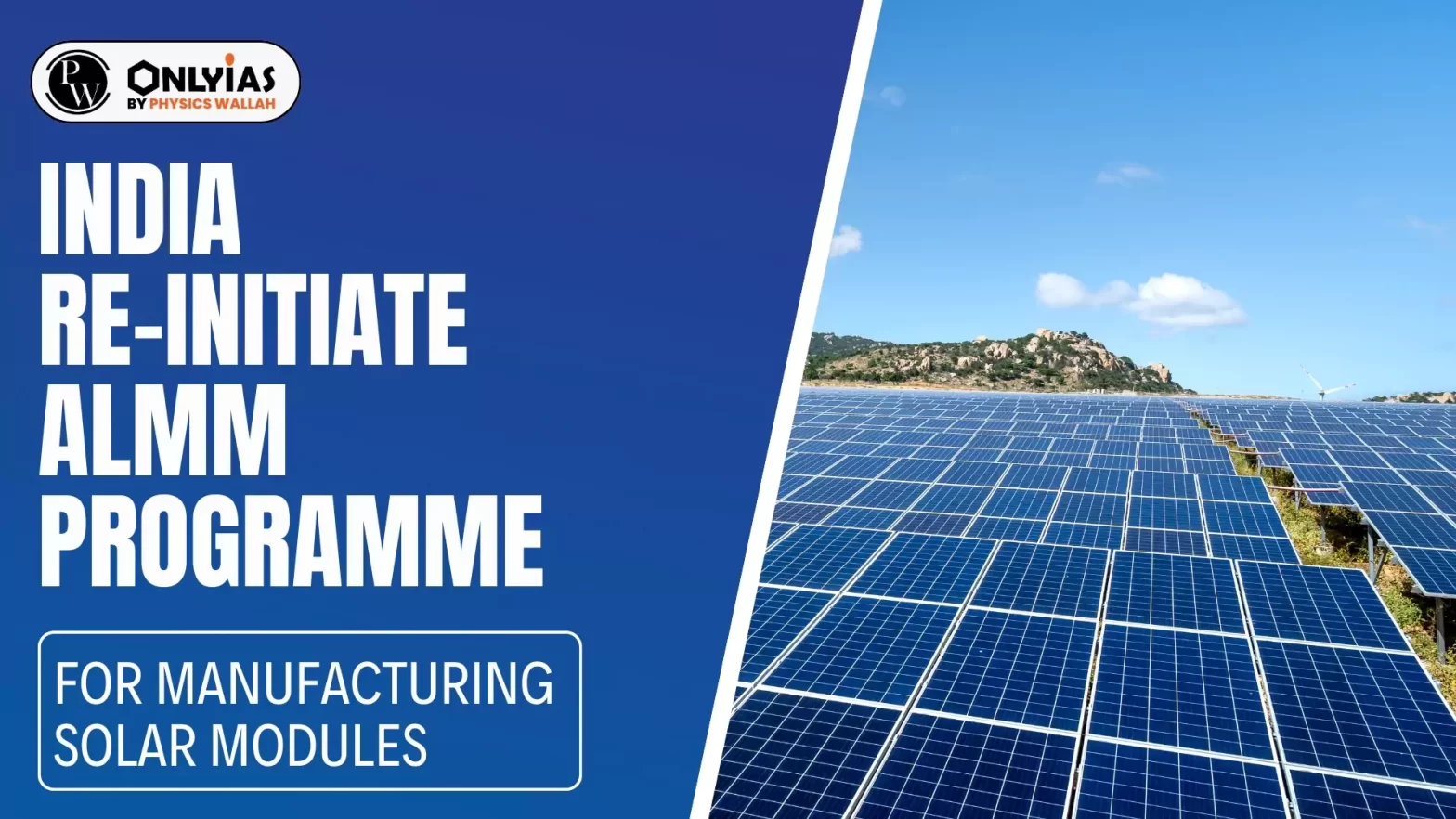![]() 3 Apr 2024
3 Apr 2024

Recently, the government is implementing the policy of an Approved List of Models and Manufacturers (ALMM), which will restrict solar power project developers from depending on imported panels.
| Relevance for Prelims: ALMM Programme, PM Suryodaya Yojana, KUSUM Scheme, and India Records 76% Drop In Solar Module Imports From China.
Relevance for Mains: Solar Energy and Associated Challenges. |
|---|
Incentive for authorized companies: Authorized companies will be entitled to bid for government tenders for its main solar energy programmes, including the recently announced PM solar rooftop yojana.
India’s ALMM programme intends to increase domestic solar Modules Manufacturing, in line with aggressive renewable energy targets. Address issues such as reaching targets and lowering reliance on imports through strategic planning and assistance.
| Mains Question: Analyse the effectiveness of the Indian government’s policies and initiatives in promoting solar energy as a solution to meet the country’s growing energy needs. (10 M, 150 Words) |
|---|
| Must Read | |
| NCERT Notes For UPSC | UPSC Daily Current Affairs |
| UPSC Blogs | UPSC Daily Editorials |
| Daily Current Affairs Quiz | Daily Main Answer Writing |
| UPSC Mains Previous Year Papers | UPSC Test Series 2024 |
<div class="new-fform">
</div>